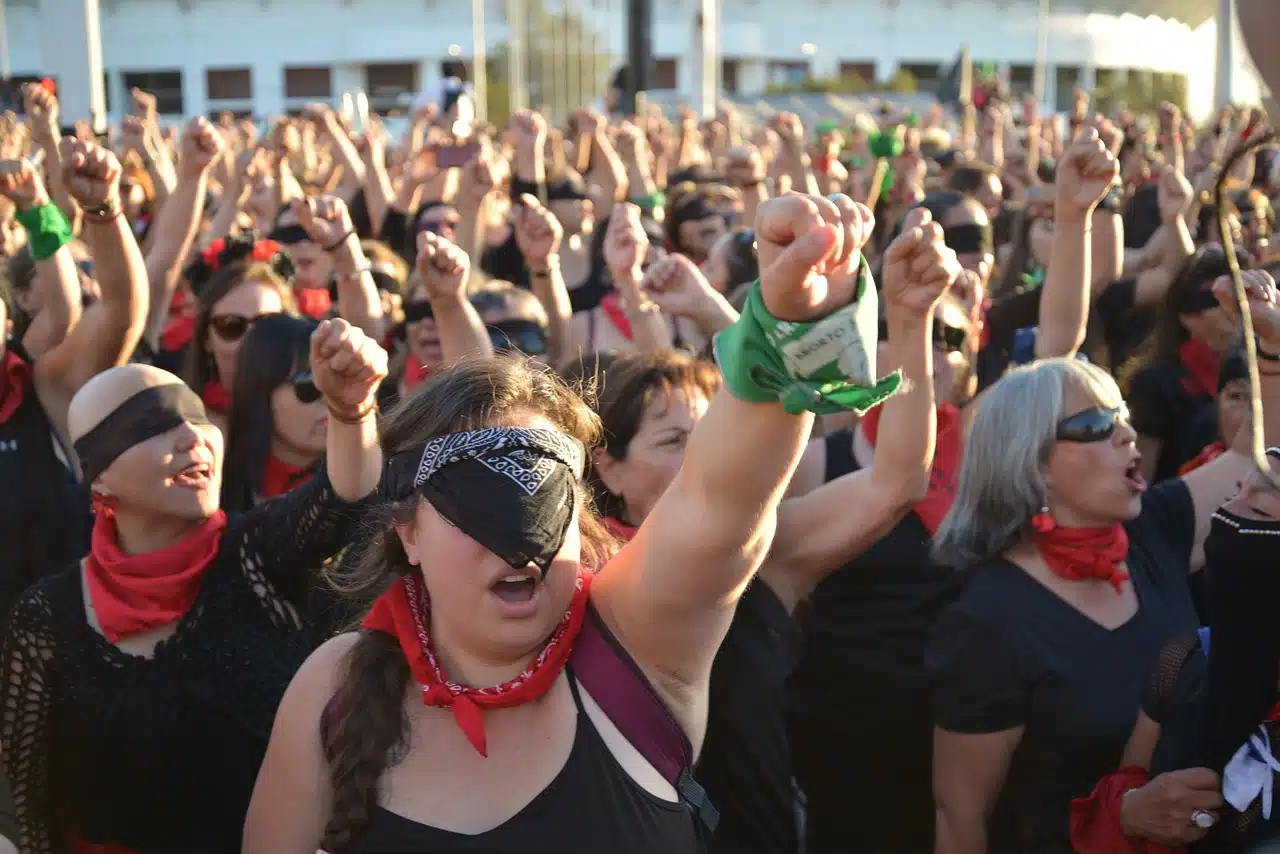
Feminism is a movement that demands women's rights.
Feminism is the social doctrine favorable to women . It is a movement that demands that men and women have the same rights : therefore, it grants the female gender capabilities previously reserved only for men.
Feminism - a term from the Latin femĭna ( "woman" ) - questions the relationships between sexuality (as gender ) and social, economic and political power. When reviewing history , feminists consider that patriarchy has been negative for society and that women have been subjected to the will of men.
It is important to keep in mind that there are men who are feminists (that is, they agree and support the movement), while not all women consider themselves feminists. Some women accept the gender roles established by society and recognize it as a cultural reality that should not be censored.
Origins of feminism
It is interesting to emphasize that, although it is considered that this movement appeared as such in the 20th century, there have been many women who throughout history had already defended the rights of the female gender. Among them is, for example, the Venetian philosopher and poet Christine de Pisan, who in the 14th and 15th centuries created several literary works in which she openly advocated for those mentioned.
Among them we would highlight, for example, "Epistle to the God of Love" ( 1399 ), with which he put an end to the idea of that courtly love that had been imposed as a "moral norm" in the society of the time. However, we could also highlight the value of other works such as "The City of Ladies" ( 1405 ), which addresses the figure of important heroines in history and is considered the work that acts as a precursor of contemporary feminism .

Feminism was consolidated in the 20th century, although its origins are older.
Its development in the 20th century
Feminism, in any case, began to be visible from the 20th century onwards in Western societies, where it achieved important achievements. The right to vote for women ( suffrage ) or to request a divorce and equal employment conditions are some of the most notable advances, even though there is still a long way to go to achieve equal rights.
In those early stages of feminism in the 20th century we could highlight such important figures among pioneering women as the Americans Lucretia Mott and Elizabeth Cady Stanton . The latter is known not only for having fought to achieve women's suffrage in her country but also for having proclaimed the need to establish birth control, divorce laws and employment rights.
Feminist history also finds references such as the Parisian writer Simone de Beauvoir , the American activist Kate Millet and the American writer Betty Friedan , as well as Virginia Woolf , Bella Abzug , Malala Yousafzai and Gloria Steinem , among many others.

For feminism, the feminist struggle must include sisterhood as a central component.
Feminism today
It is evident that, in most Western countries, female empowerment has grown in recent decades. Although progress has been made in the fight against machismo and misogyny , gender equality is still far from being a reality.
The wage gap between men and women continues to be notorious, just as gender violence is a scourge that causes numerous victims every year. The gender perspective, in turn, is still not applied in many judicial areas. Although systemic discrimination and structural oppression were reduced in various regions, microaggressions against women remain a reflection of modern patriarchy.
In the accentuation of gender awareness, the so-called inclusive language also emerged, which seeks to eliminate sexism from verbal communication. Female activism, in this framework, rejects the use of the masculine to generalize: instead of pronouncing "everyone" , to mention one case, it prefers the expression "everyone" or even terms like "everyone" or "everyone" .
In a broad sense, 21st century feminism aims to eliminate gender stereotypes and achieve true equality in rights and opportunities. As part of this process, greater participation of women in politics is promoted and the link between feminism and the media is strengthened to wage a cultural battle.
abortion
Some issues generate controversy even within feminist groups, such as the case of legal abortion.
There are women who consider abortion to be part of their rights over their own body, but many think that this practice involves the murder of a new being. It is clear that the feminist movement is not uniform nor does it act as a block.
This means that someone who fights for women's reproductive rights , to mention one case, can reject the legalization of abortion, while another feminist activist considers legal, safe and free abortion as an essential right.
